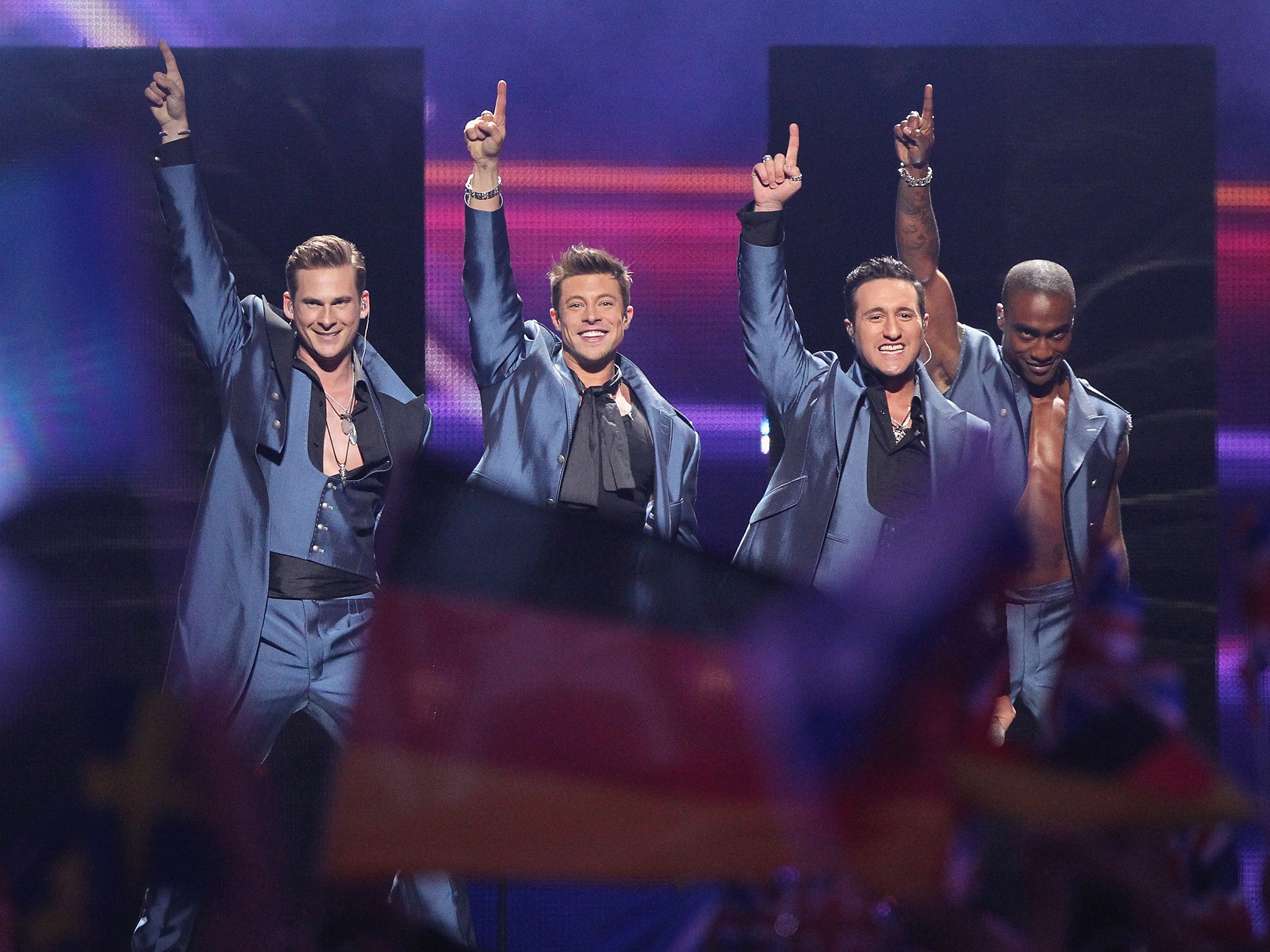Eurovision failures Blue criticise song contest: 'It's too political'
The boy band are clearly still a bit miffed with Azerbaijan and its neighbours

Your support helps us to tell the story
From reproductive rights to climate change to Big Tech, The Independent is on the ground when the story is developing. Whether it's investigating the financials of Elon Musk's pro-Trump PAC or producing our latest documentary, 'The A Word', which shines a light on the American women fighting for reproductive rights, we know how important it is to parse out the facts from the messaging.
At such a critical moment in US history, we need reporters on the ground. Your donation allows us to keep sending journalists to speak to both sides of the story.
The Independent is trusted by Americans across the entire political spectrum. And unlike many other quality news outlets, we choose not to lock Americans out of our reporting and analysis with paywalls. We believe quality journalism should be available to everyone, paid for by those who can afford it.
Your support makes all the difference.Having finished a paltry eleventh place in 2011 and with all members declaring themselves bankrupt, Blue have decided to hit out at the Eurovision Song Contest on the eve of its 60th anniversary.
The British boy band reformed to represent the United Kingdom four years ago, singing "I Can" in Dusseldorf, Germany. However, "I Can" soon became "I Can't Believe It" when Blue only notched up 100 points, losing out to eventual winners Azerbaijan.
The taste of Eurovision defeat still leaves a bitter taste in Simon, Lee, Anthony and Duncan’s mouths, especially given that Lee recently became the final member of the group of to declare themselves bankrupt. Eurovision was meant to be a stepping stone to past glories for the boys.
Thus, they feel rightly angered at Eurovision.
"I just think there’s a lot of politics involved unfortunately," Duncan James said. "You get certain countries voting for their neighbouring countries. A lot of the Eastern bloc will vote for their neighbouring countries. It’s more of a political contest rather than voting on the song."
The group took aim at the reintroduction of juries to Eurovision, something which was actually meant to make the contest less political.
Whereas before the public had the sole choice over what country was awarded douze points, each participating nation now also has a jury of five music professionals who rank the various contestants. The final points awarded from each country is a combination of the jury decision and the televote result. This change was introduced in 2009 to make more credible music win out over political allegiances.
However, Blue seemed to criticise the juries, arguing that they were political: if you took away the juries' decision, Blue would come fifth, not eleventh (hate to remind you boys, but coming fifth still doesn't mean you're a winner).
Blue did come fifth in the public vote but were only placed 22nd by the juries, averaging out their final place to eleventh.
Simon Webbe appeared despondent about the decline of the competition, arguing that poor old Britain (which once ruled a third of the world and is a member of the UN Security Council) is "a tiny little island that gets beaten all the time".
"It's supposed to be fun," he moaned. "A lot of other countries take it more seriously. We're not that involved in it."
Webbe argued that Blue enhanced the UK's standing in the contest after a miserable few years. "Sometimes having a great song helps," he added.
Well yeah, it did help us come eleventh (or fifth).
Eurovision Song Contest 2015, Saturday 8pm - 11:35pm, BBC One
Join our commenting forum
Join thought-provoking conversations, follow other Independent readers and see their replies
Comments